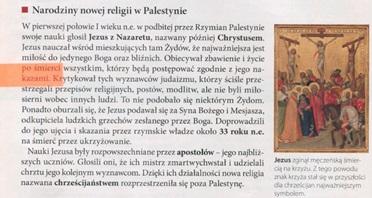Polish textbooks continue to teach antisemitic tropes
However, the report said, “several textbooks continue to reinforce outdated narratives, particularly concerning Jewish-Christian relations, Jews’ place in Polish society, and the Israeli-Palestinian conflict.”
IMPACT-se’s research on textbooks measures those used in eight European countries against UNESCO-based standards of peace and tolerance in education. A similar report on Ireland published last month found “a troubling pattern of trivialization and minimization of the Holocaust” and “narratives questioning the legitimacy of the state of Israel and undermine Jewish claims to indigeneity in the land.”
“There are a lot of pleasing improvements in Poland’s textbooks, especially in their growing Jewish content,” said IMPACT-se CEO Marcus Sheff. “However, this positivity needs to be reflected throughout the entire curriculum. It is concerning that conspiracy theories about Jewish involvement in the death of Jesus and narratives denying Jewish indigeneity to the land of Israel continue to appear in educational materials.”
“We would also welcome a more consistent acknowledgment of unique Jewish persecution during the Shoah. We look forward to working with the government and textbook authors in Poland, to help make necessary improvements and changes,” he said.
Regarding the Holocaust, some textbooks placed the specific targeting of Jews alongside Polish suffering during World War II. “This framework risks diminishing the distinct persecution Jews faced under Nazi occupation,” the report said.
It gave an example of a fourth-grade history textbook that attributes Jews’ vulnerability during the Holocaust to their “distinctiveness,” without mentioning the systematic antisemitism of the time and the role of local collaborators that contributed to their persecution.
Regarding Jewish-Christian relations, some textbooks continued to perpetuate old stereotypes, such as a fifth-grade history textbook presenting Jews as “merciless” and responsible for authorizing Jesus’s crucifixion.
Moreover, the contributions of the Jewish community to the development of the Polish state over the centuries are frequently overlooked, as are the significant impacts of Jewish culture and heritage in Poland.
While recent textbooks place less emphasis on the Jewish origins of communist figures compared to earlier editions, some continue to link Jews to communism, the report said.
Polish textbooks also portray the Jewish connection to the land of Israel in a negative light, portraying Palestinians as an indigenous population with an uninterrupted claim to the land, while Jewish ties to Israel are either minimized or ignored altogether. One fifth-grade history textbook presents the 1948 war as a conflict between Arab inhabitants and Jewish immigrants, suggesting that Jews stole their land, the report said.
While recent textbooks demonstrate “notable improvements” in their representation of Jewish themes, “the consistency of these positive changes varies, often depending on individual authors rather than a unified editorial approach,” the report concluded.
Zev Stub

